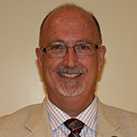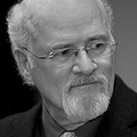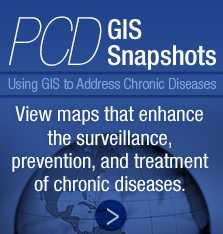
Editorial Board
Ana F. Abraido-Lanza, PhD, MA
Professor
Program Director, Initiative for Maximizing Student Development
Director, DrPH Program
Department of Sociomedical Sciences
Mailman School of Public Health
Columbia University
New York, New York

Dr. Abraido-Lanza’s research focuses on cultural, psychosocial, and socioeconomic processes that affect psychological well-being, adjustment to chronic illness, and mortality rates among Latinos, as well as health disparities between Latinos and non-Latino whites. Her current research projects include the study of acculturation and cancer-related behaviors among Latinos, as well as coping and psychosocial adjustment and socioeconomic status and disability among Latinos with arthritis. Her work on cancer screening among Latina women compares the extent to which socioeconomic factors and quality of health care predict breast and cervical cancer screening among Latinas and non-Latina whites. Dr. Abraido-Lanza is also director of the Initiative for Maximizing Student Development at the Mailman School of Public Health. She received a BA from New York University and an MA and PhD from City University of New York.
Appointment Term: 2017–2020
Collins O. Airhihenbuwa, PhD, MPH
Dean and Professor
College for Public Health and Social Justice
Saint Louis University
Saint Louis, Missouri

Dr. Airhihenbuwa is the author of PEN-3 model and a global expert and pioneer in how to centralize culture in health behaviors. He is a consultant to several United Nations agencies, including WHO, UNFPA, and UNAIDS. He led an early UN effort to galvanize multidisciplinary efforts to address HIV and AIDS globally, which resulted in the publication of UNAIDS Communications Framework for HIV/AIDS: A New Direction (2000). He has authored more than 120 articles and book chapters and is coauthor of Public Health Critical Race Praxis. He is a former President and Distinguished Fellow of the Society for Public Health Education and a fellow of the American Academy of Health Behavior and the Academy of Behavioral Medicine Research. Dr. Airhihenbuwa received a BS from Tennessee State University and an MPH and PhD from the University of Tennessee.
Appointment Term: 2017–2020
Hector Balcazar, PhD, MS
Dean, College of Science and Health
Charles R. Drew University of Medicine and Science
Los Angeles, California

Prior to his current position, Dr. Balcazar was the Regional Dean of Public Health at the University of Texas Health Science Center at Houston, School of Public Health, El Paso Regional Campus, where he was also a professor of health promotion and behavioral sciences. Dr. Balcazar is a leader in public health education, research, service and community outreach. Most recently, he received the National Hispanic Medical Association Academic Leader of the Year award. From 2003 to 2013, Dr. Balcazar was co-director of the Hispanic Health Disparities Research Center, an NIH-funded initiative in collaboration with the College of Health Sciences and School of Nursing of the University of Texas at El Paso. He was chair of the editorial board of the American Journal of Public Health from 200 to 2011. A bilingual, bicultural family and public health scientist, he specializes in the study of public health problems of Latinos and Mexican Americans. Dr. Balcazar received a BS from Iberoamericana University and a MS and PhD from Cornell University.
Appointment Term: 2017–2020
Carolyn Brooks, ScD, MA
Director of Strategic Initiatives
UnitedHealthcare Community & State
Atlanta, Georgia

At UnitedHealthcare, Dr. Brooks works to build strategic partnerships and to develop, test, and scale initiatives aimed to improve health outcomes and reduce health care costs for low-incomes individuals, including pregnant women, children, seniors, and those living with disabilities. Previously, she worked for the Harvard Prevention Research Center and for the Centers for Disease Control and Prevention, where she contributed to varied communication, policy, research, and programmatic initiatives, including Communities Putting Prevention to Work and Healthy People 2020. Much of her work has focused on implementing and evaluating community-level policy and environmental interventions that address social determinants, chronic disease prevention, and health disparities. She received a dual Doctor of Science degree from the Harvard T.H. Chan School of Public Health in the Social & Behavioral Sciences and Nutrition Departments, and a Master of Arts degree in Health Communication from the University of Georgia.
Appointment Term: 2017–2019
Clyde P. Brown, PhD, MSPH
Professor
Institute of Public Health
College of Pharmacy and Pharmaceutical Sciences
Florida A&M University
Tallahassee, Florida

Dr. Brown’s research focuses on medical and public health informatics, health disparities, cardiovascular epidemiology and prevention, and birth defects. He teaches courses in cardiovascular disease epidemiology, cancer epidemiology, maternal and child health epidemiology, geographic information systems, advanced epidemiological and statistical methods, and data management and analysis. He also directs the GIS, Data, and Spatial Analysis Laboratory, which provides hardware, software, data management, and analytical support for faculty members and students. Dr. Brown’s experience in public health and epidemiology includes epidemiology of infectious diseases (smallpox in Bangladesh, sexually transmitted diseases in Los Angeles; human immunodeficiency virus/acquired immunodeficiency syndrome in the Los Angeles, Zaire, Brazil, and Thailand; and tuberculosis in Los Angeles) and chronic diseases (cancer and cardiovascular disease) and environmental and occupational epidemiology. He also is honorary professor in the School of Health Sciences, University of KwaZulu-Natal, Durban, South Africa. Dr. Brown received a BA from California State University, Los Angeles, and an MSPH and DrPH from the Fielding School of Public Health, University of California, Los Angeles.
Appointment Term: 2017–2019
Ross C. Brownson, PhD
Bernard Becker Professor
Director, Prevention Research Center
Washington University in St. Louis
St. Louis, Missouri

Dr. Brownson studies the translation of evidence to public health practice, with a content focus on environmental and policy determinants of physical activity and obesity. He is the author of 9 books and more than 450 peer-reviewed articles. His books include Applied Epidemiology, Evidence-Based Public Health, and Dissemination and Implementation Research in Health. Dr. Brownson is noted as being among the most productive public health scholars and was recently named by Thomson Reuters as one of the world’s most influential scientific minds. He is a former board member of the American Cancer Society and former president of the National Association of Chronic Disease Directors. He is also active in the American College of Epidemiology, of which he is a past president. Dr. Brownson received a BA from the University of Montana and a PhD from Colorado State University.
Appointment Term: 2017–2018
Martin G. Cherniack, MD, MPH
Professor of Medicine
University of Connecticut Health Center
Farmington, Connecticut

Dr. Cherniack is an occupational medicine physician and professor of medicine at the University of Connecticut Health Center and director of its Ergonomics Technology Center. He has studied work-related musculoskeletal diseases, management of chronic disease in the working population, hand–arm vibration, the physiology of aging of the workforce, integrated interventions in manufacturing and public-sector work forces, ergonomic tool development, and radiation-related health effects at Chernobyl. He recently became engaged in translational research, combining biomedical and social sciences with the goal of developing preventive health interventions. Since 2006, he has been the co-director of the Center for the Promotion of Health in the New England Workplace, a NIOSH-funded center of excellence for work–life research. Dr. Cherniack received a BA from Yale College, an MPH from the University of California, and an MD from Stanford University.
Appointment Term: 2017
Jack Dennerlein, PhD
Professor
Northeastern University
Boston, Massachusetts

Dr. Dennerlein is a professor in the Bouvé College of Health Sciences at Northeastern University and an associate director of the Harvard T.H. Chan School of Public Health Center for Work, Health, & Well-being. Dr. Dennerlein is an engineer whose public health research takes a systems approach to understanding and preventing work-related injuries and improving worker health and well-being. He received a BS from the University of Buffalo, an SM from Massachusetts Institute of Technology, and a PhD from the University of California, Berkeley.
Appointment Term: 2017–2019
David Fleming, MD
Vice President, Public Health
PATH
Seattle, Washington

Dr. Fleming is vice president of PATH’s public health sector, which houses programs in reproductive health; maternal, newborn, and child health; noncommunicable diseases; malaria and neglected tropical diseases; HIV/AIDS and tuberculosis; health systems strengthening; global health securities; and nutrition innovations and digital health solutions. Before joining PATH in 2014, Dr. Fleming was the director and health officer for Public Health–Seattle and King County. Before that, he was the director of Global Health Strategies at the Bill & Melinda Gates Foundation. Dr. Fleming also served as Deputy Director for Science and Public Health at the Centers for Disease Control and Prevention and deputy administrator of the Agency for Toxic Substances and Disease Registry. Dr. Fleming received a BS and an MD from the State University of New York.
Appointment Term: 2017–2018
Krista Fremming, MPA
Director, Division of Chronic Disease
North Dakota Department of Health
Bismarck, North Dakota

Krista Fremming is Director of the Division of Chronic Disease at the North Dakota Department of Health, a position she has held since September 2014. Krista’s professional experience includes roles in human resources administration, community engagement, fund development, and program development/evaluation. She has held positions in various areas of public health, including comprehensive cancer control, tobacco prevention and control, and coordinated chronic disease. Krista is currently a member of the National Association of Chronic Disease Directors Regional Representatives Council. She has received extensive training in evidence-based public health, supervisory management and strengths-based leadership. Krista holds a Master of Public Administration degree from the University of North Dakota.
Appointment Term: 2017–2020
Ralph Fuccillo, MA
Senior Advisor
DentaQuest
Boston, Massachusetts

Mr. Fuccillo is senior advisor to DentaQuest’s chief executive officer. For 10 years, he was president of the DentaQuest Foundation, the nation’s largest grant-making organization focused solely on oral health. He is vice-chair of Road Scholar (formerly Elderhostel), a founding board member of the US National Oral Health Alliance, a board member of the Massachusetts Dental Society Foundation, a trustee of Mount Ida College, and a board member of the Texas Health Institute. He was co-chair of the US Department of Health and Human Services Region 1 Regional Health Equity Council from 2011 to 2016. In 2012, he was inducted into the Santa Fe Group, a group of scholars and leaders from business and the professions who are bound by a common interest to improve oral health. Mr. Fuccillo received a BS from the University of Massachusetts and an MA from Fordham University.
Appointment Term: 2017
Lauren Gase, PhD, MPH
Senior Researcher
Spark Policy Institute
Denver, Colorado

At Spark Policy Institute, Dr. Gase partners with stakeholders throughout the country to develop innovative, research-based solutions to complex societal problems. Previously, she served as the Chief of Health and Policy Assessment in the Division of Chronic Disease and Injury Prevention at the Los Angeles County Department of Public Health. Throughout her career, she has led several applied research and evaluation projects to prevent chronic disease and improve the social determinants of health. Much of her work has focused on identifying ways to improve the holistic health and well-being of children and adolescents in partnership with the education and juvenile justice systems. Dr. Gase received a BS from University of California–Santa Barbara, an MPH from Emory University, and a PhD from the Fielding School of Public Health, University of California–Los Angeles.
Appointment Term: 2017–2020
Lawrence W. Green, DrPH, ScD(Hon), MPH
Professor Emeritus
University of California–San Francisco
San Francisco, California

Dr. Green is best known by health education researchers as the originator of the PRECEDE Model and co-developer of the PRECEDE-PROCEED Model, which is used throughout the world to guide health program intervention design, implementation, and evaluation and has led to more than 1,000 published studies. He is a past president and Distinguished Fellow of the Society for Public Health Education and Honorary Fellow of the American School Health Association. He is a fellow of the American Academy of Behavioral Medicine Research, the Society of Behavioral Medicine, and the American Academy of Health Behavior. He is the recipient of two of the American Public Health Association’s highest awards, the Distinguished Career Award and Award of Excellence and the Sedgwick Medal. He was elected to the Institute of Medicine, National Academy of Science. He was Distinguished Fellow/Visiting Scientist at the Centers for Disease Control and Prevention (CDC), director of the CDC–World Health Organization’s Collaborating Center on Global Tobacco Control from 1999 to 2001, and acting director of CDC’s Office on Smoking and Health in 2001. He has served as associate editor of the Annual Review of Public Health and on the editorial boards of the American Journal of Preventive Medicine, the American Journal of Health Behavior, and 12 other journals. He has served on the public health and/or medical faculties of the University of California–Berkeley, Johns Hopkins University, Harvard University, University of Texas, University of British Columbia, and University of California–San Francisco. Dr. Green received a BS, an MPH, and a DrPH from the University of California–Berkeley.
Appointment Term: 2017–2019
Melissa Grim, PhD, MA
Chair and Professor
Department of Health and Human Performance
Radford University
Radford, Virginia

As chair and professor at the Department of Health and Human Performance at Radford University, Dr. Grim serves 650 to 675 students and 21 full-time faculty members. Active in the Society for Public Health Education (SOPHE), she is completing her seventh year of service as a deputy editor for Health Promotion Practice. She co-authored a chapter in SOPHE’s textbook, Health Promotion Programs: From Theory to Practice and also co-edited both the sixth and seventh editions of The Health Education Specialist: A Study Guide for Professional Competence published by The National Commission for Health Education Credentialing, Inc. Dr. Grim received the Radford University Distinguished Faculty Advising Award and the College of Education and Human Development Scholarly Activity Award. She received a BS from Bowling Green State University and an MA and PhD from the Ohio State University.
Appointment Term: 2017–2020
Roberta B. Hollander, PhD, MPH, MA
Professor and Interim Chair
Department of Health, Human Performance and Leisure Studies
Howard University
Washington, DC

Dr. Hollander’s research and publications focus on women’s health, patient–provider interactions, sexual violence, and health disparities. She has taught undergraduate and graduate courses in program planning, implementation, and evaluation; women’s health; disease prevention and health promotion; and the foundations of health promotion. In addition to her teaching responsibilities, Dr. Hollander has been the advisor and committee member on numerous theses and dissertations in the United States and Australia in health education, health communications, and nutritional sciences. She has been active in the American Public Health Association since the 1970s and has held several positions in the association, including as chairperson of the Public Health Education/Health Promotion section. Dr. Hollander received a BA from Boston University, an MA from George Washington University, an MPH from Johns Hopkins University, and a PhD from American University.
Appointment Term: 2017–2019
Philip Huang, MD, MPH
Medical Director and Health Authority
Austin Public Health
Austin, Texas

Before joining Austin Public Health, Dr. Huang was the state chronic disease director at the Texas Department of State Health Services. He served as an Epidemic Intelligence Service officer at the Centers for Disease Control and Prevention and is a past president of the National Association of Chronic Disease Directors. Dr. Huang currently serves as chair of the Food and Drug Administration’s Tobacco Products Scientific Advisory Committee and chair of the Texas Comprehensive Cancer Coalition. He received a BA from Rice University, an MD from the University of Texas Southwestern Medical School, and an MPH from Harvard University.
Appointment Term: 2017–2019
Sara L. Huston, PhD
Lead Chronic Disease Epidemiologist
Maine Center for Disease Control and Prevention
Augusta, Maine

In addition to her post at the Maine Center for Disease Control and Prevention, Dr. Huston is an assistant research professor at the Muskie School of Public Service at the University of Southern Maine. She is also an Epidemic Intelligence Service alumna. Dr. Huston has more than 20 years of experience in applied epidemiology and surveillance for chronic disease at state health departments. She also served on the executive board of the Council of State and Territorial Epidemiologists. She received a BA from Hampshire College and a PhD from the University of Pittsburgh Graduate School of Public Health.
Appointment Term: 2017–2019
Rachel Kaufman, PhD, MPH
Associate Director for Science
National Center for Chronic Disease Prevention and Health Promotion
Centers for Disease Control and Prevention
Atlanta, Georgia

Dr. Kaufmann is the Associate Director for Science for the National Center for Chronic Disease Prevention and Health Promotion (NCCDPHP) at the Centers for Disease Control and Prevention (CDC). The NCCDPHP houses programs in population health, cancer control and prevention, diabetes translation, heart disease and stroke prevention, reproductive health, physical activity and nutrition, oral health, and tobacco use. Before joining NCCDPHP in 2016, she served in similar roles for CDC’s Center for Surveillance, Epidemiology, and Laboratory Services, Epidemiology and Analysis Program Office, and Office on Smoking and Health. She was also seconded by CDC to the World Bank for Pollution Management and Environmental Health for 5 years. Dr. Kaufman received a BA from Brown University and an MPH and PhD from the University of Michigan.
Appointment Term: 2017–2019
Eugene J. Lengerich, VMD, MS
Professor of Public Health Sciences
Pennsylvania State University
State College, Pennsylvania

In addition to his post at Pennsylvania State University, Dr. Lengerich is Associate Director for Health Disparities and Engagement for the Penn State Cancer Institute. He is an epidemiologist with expertise in community-engaged research focused on the development, testing, and dissemination of evidence-based practices to reduce the burden of cancer among people in medically underserved and minority communities. In addition, he has created digital atlases to quantify patterns in cancer incidence and mortality. Before joining Penn State, Dr. Lengerich was the state chronic disease epidemiologist for North Carolina and a staff epidemiologist for the Centers for Disease Control and Prevention. Dr. Lengerich received a BS from Bowling Green State University, an MS from The Pennsylvania State University, and a VMD from the University of Pennsylvania.
Appointment Term: 2017–2019
Christopher Maylahn, MPH
Program Research Specialist
New York State Department of Health
Albany, New York

Mr. Maylahn’s area of expertise is chronic disease epidemiology. He has more than 35 years of experience as a program research specialist with the New York State Department of Health, where he provides operational support for the state public health improvement plan. His areas of research include risk factor and disease surveillance, system structure and performance, interorganizational relationships and partnerships, factors associated with sustainable public health partnerships for community health needs assessments, and evidence-based decision making. He received a BA from the University of Vermont and an MPH from Yale University and is currently a doctoral candidate in health policy at the State University of New York School of Public Health.
Appointment Term: 2017–2019
Nicholas G. Mosca, DDS, DrPH
Quality Manager
CrescentCare Health
New Orleans, Louisiana

Dr. Mosca was the director of the sexually transmitted diseases/human immunodeficiency virus program for 6 years and state dental director for 9 years at the Mississippi State Department of Health. He also directed a hospital-based dental program for the University Hospital at the University of Mississippi Medical Center (UMMC). In 1996, he was the Harry W. Bruce, Jr., Legislative Fellow for the American Dental Education Association. He was also a US Public Health Service Primary Care Policy Fellow in 2005 and the Meskin Fellow for the Santa Fe Group in 2012. Dr. Mosca is past president of the American Association of Public Health Dentistry. He received a BS from Tulane University, a DrPH from the University of North Carolina at Chapel Hill, and a DDS from Loyola University School of Dentistry.
Appointment Term: 2017–2018
Nico Pronk, PhD
President
HealthPartners Institute
Bloomington, Minnesota

In addition to his post at HealthPartners Institute, Dr. Pronk is Chief Science Officer at HealthPartners, Inc, and has a faculty appointment as Adjunct Professor of Social and Behavioral Sciences at the Harvard T.H. Chan School of Public Health. Dr. Pronk’s work focuses on connecting evidence of effectiveness with the practical application of programs and practices, policies, and systems that measurably improve population health and well-being. Dr. Pronk serves as co-chair of the Secretary of the Department of Health and Human Services’ Healthy People 2030 Advisory Committee and is a member of the Community Preventive Services Task Force. He received a BS from Davis & Elkins College, an MA from Kearney State College, and a PhD from Texas A&M University.
Appointment Term: 2017–2019
Patrick L. Remington, MD, MPH
Associate Dean for Public Health and Professor of Population Health Sciences
School of Medicine and Public Health, University of Wisconsin–Madison
Madison, Wisconsin

Dr. Remington directs the University of Wisconsin School of Medicine and Public Health’s Preventive Medicine Residency program and the PRIME program — a federally funded educational program to enhance public health education of medical and physician assistant students. Dr. Remington worked as an epidemiologist at the Centers for Disease Control and Prevention and the Wisconsin Division of Public Health for 15 years before joining the University of Wisconsin in 1997. While at the University of Wisconsin he served as associate director of the Carbone Cancer Center and was the founding director of the University of Wisconsin Population Health Institute and the Master of Public Health program. His research focuses on developing methods to measure the health of communities and communicate this information to the public and policy makers. He is the founder of the County Health Rankings project funded by the Robert Wood Johnson Foundation. Dr. Remington received a BS from the University of Wisconsin, Madison, an MPH from the University of Minnesota School of Public Health, and an MD from the University of Wisconsin School of Medicine.
Appointment Term: 2016–2017
Shamarial Roberson, DrPH, MPH
Chronic Disease Director
Florida Department of Health
Tallahassee, Florida

Dr. Roberson joined the Bureau of Chronic Disease Prevention at the Florida Department of Health in 2013 as an epidemiologist. In addition to serving as the Chronic Disease Director, she is the co-chair of the Health Equity Program Council. She supervises staff members in various activities, including prevention and intervention activities in areas such as heart disease and stroke, diabetes, epilepsy, asthma, and lupus. Additionally, the bureau works to ensure inclusivity of people with disabilities throughout all programs. She supervises the School Health Services team and the chronic disease Epidemiology and Evaluation team. Her research is oriented toward reducing health inequities, especially as they relate to heart disease and related risk factors. Dr. Roberson received a PhD in public health (in epidemiology and biostatistics) from Florida A&M University and a MPH and BS from Florida State University.
Appointment Term: 2017–2020
Magaly Rodriguez de Bittner, PharmD
Professor and Associate Dean for Clinical Services and Practice Transformation
Department of Pharmacy Practice and Science
University of Maryland School of Pharmacy
Baltimore, Maryland

Dr. Rodriguez de Bittner is executive director of the Center for Innovative Pharmacy Solutions at the University of Maryland School of Pharmacy. Her work has led to the development of innovative and nationally recognized programs, including the Giant Diabetes Education Program and the Maryland P3 Program. She served as director of the Community Pharmacy Residency Program at the University of Maryland (1996–2006) and currently is a preceptor. She has worked with the Centers for Disease Control and Prevention to advance the role of pharmacists in chronic disease management. She is past president of the Maryland Pharmacists Association and the American Pharmacists Association Foundation Board from 2006 to 2008. Her leadership has led to quantifiable improvements in chronic disease management through medication use by improving medication adherence and/or developing diabetes and cardiovascular programs based on national treatment guidelines and evidence-based medicine. She has received numerous awards, including, most recently (in 2015), the American Pharmacists Association Foundation’s Pinnacle Award for Individual Career Achievement. She received a BS from the University of Puerto Rico School of Pharmacy and a PharmD from the University of Maryland.
Appointment Term: 2017–2020
Gia Rutledge, MPH
Lead Health Scientist, Division of Diabetes Translation
National Center for Chronic Disease Prevention and Health Promotion
Centers for Disease Control and Prevention
Atlanta, Georgia

Gia Rutledge is a Lead Health Scientist in National Center for Chronic Disease Prevention and Health Promotion, Division of Diabetes Translation. She serves as the Team Lead for the Performance Improvement and Evaluation team providing evaluation guidance and technical assistance to states, communities, and national partners. She also provides evaluation expertise on special projects, contracts, and workgroups across the division and center. She received her Masters of Public Health in Community Health Practice from the University of Arizona and her Bachelors of Science in Biology from the University of California at San Diego.
Appointment Term: 2017–2020
Martina V. Taylor, BS, MT(ASCP)
Senior Prevention Science Advisor
Division of Cancer Prevention
National Cancer Institute
Bethesda, Maryland

Ms. Taylor is a primary advisor to the division director, planning officer, and liaison for legislative and intergovernmental activities. Her responsibilities include identifying opportunities and monitoring the division’s collaboration and partnership activities within the National Cancer Institute and with other agencies and organizations as well as developing the division’s program and budget reports. She also works on special projects, including the current collaboration with the China National Cancer Center. Ms. Taylor is an active member of several intergovernmental groups at the Department of Health and Human Services with responsibility for developing national plans and programs, including initiatives related to the National Prevention Strategy, the Federal Interagency Health Equity Team, Healthy People 2020, and Healthy People 2030. She received a BS from the University of Maryland and a BS from Catholic University of America.
Appointment Term: 2017–2018
The opinions expressed by authors contributing to this journal do not necessarily reflect the opinions of the U.S. Department of Health and Human Services, the Public Health Service, the Centers for Disease Control and Prevention, or the authors' affiliated institutions.
- Page last reviewed: October 3, 2017
- Page last updated: October 3, 2017
- Content source:
- Maintained By:



 ShareCompartir
ShareCompartir